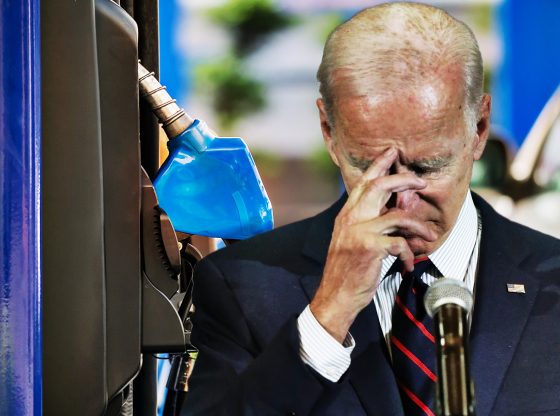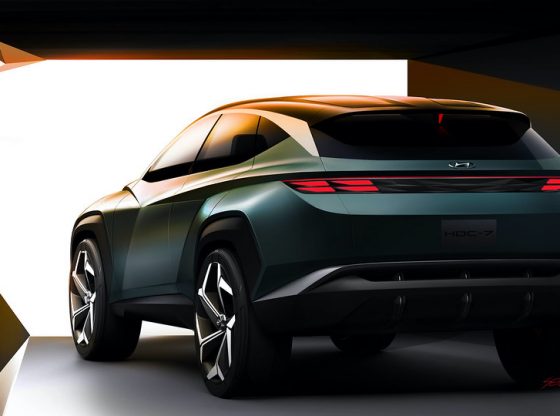The company that made hybrid cars no longer an act of science fiction and brought them to households for affordable prices is now dialing back efforts for EV cars. When Toyota unveiled the Prius in 1997 they created the first mass-produced hybrid car, which not only broke scientific barriers, but was genuinely a scientific marvel. With batteries that lasted upwards of 100,000-150,000 miles, the 1997 Prius and the models made later are still competitive with cars released in 2022.
Having a first effort with the success of the 1997 Toyota Prius was surprising to many skeptics, however, Toyota’s reputation pointed in this direction. Toyota has a reputation of not only being reliable, but also being innovative, and that’s exactly what the 1997 Prius was.
Since then, what happened?
As ambitious as Toyota was with the original, now 25-year-old Prius, they’ve evaluated the market and the direction of the science in clean cars. While they broke ground originally with the Prius, the technology was ready for this innovation. On a wide scale in today’s world, many people and many places are not ready for EV cars. Aside from the short battery life of these cars, and the frequent replacement batteries needed for fully electric cars, there’s one other, much larger issue – the highly polluting process of mining for the metal necessary, and making the batteries.
While Toyota has carbon-neutral goals set for the future, after assessing the pollutants released in the manufacturing process of creating these EV cars, today’s technology isn’t ready for these EV cars to contribute toward a carbon-neutral future.
According to CNBC.com:
“The fact is: a hybrid today is not green technology. The Prius hybrid runs on a pollution-emitting combustion engine found in any gas-powered car,” Katherine García, director of the Sierra Club’s Clean Transportation for All campaign, wrote in a recent blog post.
Jim Adler, founding managing director of Toyota Ventures, believes that a mix of cars and a diverse market, and that electric cars are just one part of the solution.
CNBC.com continues:
“In the distant future, I’m not investing assuming that battery electrics are 100% of the market. I just don’t see it,”
“It really will be a mixed market.”
Toyota executives expect different areas of the world to adopt electric vehicles at varying rates, largely based on available energy, infrastructure and raw materials needed for the batteries to power the vehicles.
Beyond hybrid and plug-in electric vehicles, Toyota has invested heavily in hydrogen fuel cell electric vehicles, including a second generation of its Mirai.
Hydrogen fuel cell-powered vehicles operate much like battery-electric ones but are powered by electricity generated from hydrogen and oxygen, with water vapor as the only byproduct. They’re filled up with a nozzle almost as quickly as traditional gas and diesel vehicles.
“BEV, fuel cell, plug-in hybrids, all those reduction tools are going to happen, and they’re all important,” Hollis said.
Toyota said it is also looking into e-fuels, which officials say is a climate neutral fuel to replace gasoline in nonelectric vehicles.
Toyota is considering looking at the issue of pollution a different way – cars running similarly, but running on fuel that burns more cleanly. The goal would be to phase out gasoline, instead of phasing out internal combustion engines. Next time you get a fill-up, you’d be filling up the same way, but with a different product creating the power in your engine.
Whether you believe in global warming… climate change or not, we can all admit we want cars that run well, and a world that remains clean. We, the consumer, don’t want to be the survey group to see if these cars actually work. Toyota already got it right on their first try once with the 1997 Prius, and according to their reputation, they likely won’t release a product onto the market if it’s not a finished product, like many EV cars could be considered to be.












I think they understand the real solution and not just propaganda that’s agenda driven!
don’t want an electric car. Not very good in hot climates, they are have bee shown to catch on fire on some, run out of charge on some and a pain the watcha macallet to charge battery which takes time to do so
Bought my Toyota new in 2004, still haven’t had a problem with it.
Toyota gets it…much to the chagrin of those beating the EV drums…hear that Kerry, Thunberg, Biden, Obama, Newsome, et al…?
Now if we can get them to come out against LGBTQ we might do business with them.
Yeah, those fuel burning cars are really bad for the atmosphere – – There they are, discharging all the CO2 in the air, and all they’re doing is feeding the trees, the bushes, and the vegetables, that inhale CO2, and give off oxygen, so that those lousy humans can inhale the oxygen, and give the trees back some CO2.
I’m glad at least one automaker is showing some sanity.
Toyota has it right again thank goodness someone is sane !
Thanks Toy to Verify NO EVs
Good call
Other EV Issues:
Black/Brownouts
Range
Replace battery unit
EV cost
State electric rates
Lack commercial chargers
Updated Grid
For CA No energy=No EVs
So correct! I had no idea that the Prius had the longevity mentioned in this story. My objection to them is that they are extremely UGLY and don’t want anyone to see me behind the wheel of such a hideous looking thing.
kudos toyota
EV Issues:
No energy=No EVs for CA
EV costs
Range
Charging times
Lack Comm Chargers
Dated Grid
State electric rates
Replace battery
battery fires?
crowded Comm charging centers
Climate change is a cruel hoax played on the world at large by a mentally unbalanced United Nations, struggling to be relevant after they have totally and completely lost their function as a peacemaker. The way that the world will end is more than likely going to be a collision with an asteroid or something from out space, or maybe something unusual that happens to our sun. When I think of the trillions extorted from governments as well as well-meaning people, that is wasted on this pseudo science that has turned into fear porn, I think of how we would already have high speed rail plus an infrastructure and electric grid that would be the envy of the world. Think of it this way. Without carbon dioxide, there would be absolutely no life on earth. Second, we are a carbon based society in that we depend on carbon and is by products for everything we use. Just because the U.N. picked these 2 items to ban does not make them dangerous by any means. What will they ban next? Meat? Let me tell you a story. Of all of the monkeys on earth, there is only one species that is a carnivore in that it eats meat. You can pretty much guess what it is as it is the only one that can be trained to a high level. Yes it is the Chimpanzee. Also, have you noticed that vegetarians often look pale or emaciated and just do not look healthy. Meat is an important part of our society. Who knows? Maybe they will ban water or oxygen next. It will be the decision based on whoever is pulling their strings.
great for Toyota at least they are using common sense.
There will never be enough electricity to support a 100% EV fleet. Do the math. At present levels of generation we are having black outs with less than 2% EV’s. The grid would have to produce over 10 times the current electricity generation. It would take nuclear to do that, an impossibility using solar and wind only.
Toyota is Logical and Intelligent
Read where someone brought a 80K EV Hummer & takes 4 days to charge
“Jim Adler, founding managing director of Toyota Ventures, believes that a mix of cars and a diverse market, and that electric cars are just one part of the solution.”…. Exactly!
Yes! I drive a Lexus and it’s great to hear they will be around for a long time!
I knew that Toyota had hit the jackpot with the Prius when taxi companies incorporated the Prius into their business models. I see a lot of Prius taxis in Japan where I spend much of my time. Prius doesn’t need a hi-tech, hard to find, time consuming charging station either. It recharges its batteries, as needed, on the fly, using its gasoline engine. Prius owners I have spoken with say they fill up their 12 gallon gas tank about 3 times every 2 months!! It’s not the same for all users, but that gives you some idea of operating costs…and there is very little, or no electricity to pay for when you own a Prius. What’s not to like?
No energy=No EVs for CA
& other issues:
Battery fires
Long charging times: 1 Hummer takes 4 days to charge
State electric rates
EV costs
Lack commercial chargers
Few commercial chargers
Grid NOT updated
Finally some sanity from a major player in the Automotive world. Their position is rational and based on experiential data. Reason should continue to prevail over the wistful, emotionally green goals that have been thrust at us by politically correct corporate leaders.
I like to go camping and I don’t want to be limited to a hundred mile radius that an EV truck can provide on a single charge. I will not buy something that is overpriced and useless.
Honesty in an automobile manufacturer is a refreshing change. I will continue to drive Toyotas as I have for many years.